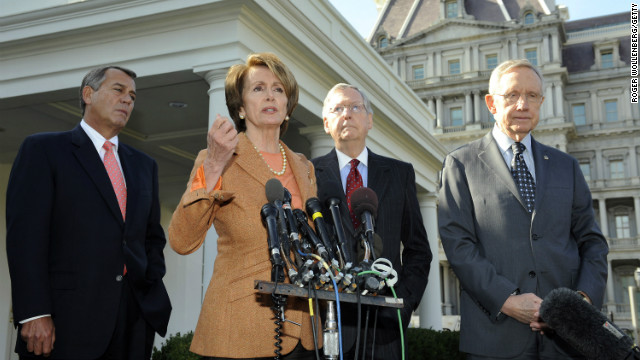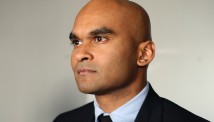
Editor's note: Reihan
Salam, a CNN contributor, is a columnist for Reuters; a writer for the
National Review's "The Agenda" blog; a policy adviser for e21, a
nonpartisan economic research group; and co-author of "Grand New Party:
How Conservatives Can Win the Working Class and Save the American
Dream."
(CNN) -- Earlier this year, Sen. Chuck Schumer, D-New York, and House Minority Leader Nancy Pelosi, D-California, expressed support
for raising taxes only on households earning $1 million or more, a
higher threshold than the $250,000 dividing line backed by President
Obama.
Eventually, Schumer and
Pelosi declared their support for the president's position. But the $1
million proposal might serve as the basis for a bipartisan agreement.
A number of Republicans,
led by Sen. Bob Corker, R-Tennessee, have called for raising tax revenue
by capping deductions at $50,000, a proposal that would leave virtually
all middle-income households untouched while substantially raising
average tax rates on households in the top 2% of the income
distribution.

Reihan Salam
A deduction cap is
expected to raise roughly $800 billion in revenue above current policy,
which is only half of the $1.6 trillion the Obama administration hopes
to raise from high-earners. It is, however, an amount that many
congressional Republicans appear to have deemed acceptable.
Politics: The road to fiscal cliff paved with good intentions
One of the central
problems with a deduction cap, however, is that it is likely to be
opposed by politically influential charitable organizations, which
recognize that it will greatly undermine the incentive for high earners
to make large charitable donations. Moreover, President Obama has
insisted that tax rates on high earners will have to increase, though he
has not made an explicit commitment to the Clinton-era statutory top
rate of 39.6% (which compares to today's top rate of 35%).
So, is there a way out of
this impasse? Rep. Mike Simpson, R-Idaho, along with Reps. Tom Cole,
R-Oklahoma, Bob Dold, R-Illinois, and Mary Bono Mack, R-California, have
called on congressional Republicans to back legislation that would
extend all the Bush-era tax cuts except for the high-income rate
reductions, which would be allowed to expire. This remains a minority
view among congressional Republicans, but it may well gain support in
light of the popularity of allowing the high-income rate reductions to
expire.
Another possibility is
that congressional Republicans will embrace the Schumer-Pelosi proposal.
That is, rather than embrace expiration for the high-income rate
reductions for households earning $250,000 or more, they would accept it
for households earning $1 million or more.
This would shield a
large, politically influential constituency of affluent households, a
disproportionately large share of whom live in high-cost metropolitan
areas in blue states, while allowing Democrats and Republicans to take a
politically popular stand.
Opinion: A tax we could learn to love
To raise somewhat more
revenue, this threshold could be set at $500,000 or $410,000, the latter
of which would more precisely target the top 1% of households by annual
income. Rather than set the tax rate for this new top bracket at 39.6%,
Congress could set a rate of 36% or 37%, a face-saving gesture that
would contribute to an appearance of moderation.
Back in 2007, Alan Viard, a tax economist at the right-of-center American Enterprise Institute, offered a detailed explanation
of why increasing taxes on high-income households alone is unlikely to
raise enough revenue to reach ambitious deficit reduction goals. At the
time, he estimated that raising $1 trillion in additional revenue
relative to the Bush-era tax code from households earning $1 million or
more ($500,000 for singles) would require raising the tax rate from 35%
to 57%.
If the goal of a
millionaire's tax bracket is not to raise revenue in the most efficient
manner but rather to make a political point, as seems at least somewhat
plausible, it is easy to imagine it as the basis of a political
compromise.
The Obama administration
is eager to secure more fiscal stimulus for the coming year in light of
sluggish global economic growth. So a tax compromise that raises
relatively little revenue is arguably desirable, at least in the short
term, as it would help forestall an economic contraction.
Homes, cars, jobs: Americans already making big decisions over fiscal cliff
If some small number of
Republican senators from swing states are willing to cross the aisle to
back a millionaire's tax bracket, President Obama will be able to claim
he has a bipartisan consensus in favor of his broad approach to
resolving the fiscal cliff. This in turn will make it very difficult for
House Republicans to resist.
 4:11 PM
4:11 PM
 specialshowtoday
specialshowtoday

 Posted in:
Posted in: 

0 comments:
Post a Comment